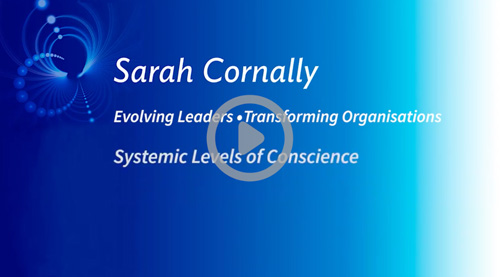
Systemic Levels of Conscience
What are the systemic levels of conscience, and how to do they play out in an organisational setting? Their impact can be profound. Levels of conscience can be in harmony or dissonance. When we experience significant events, it can throw us into turbulence, which arises with clashing levels of conscience. When we understand how to work with these different levels, we can create flow and vitality instead.
To start with, what does conscience mean? Conscience is our moral sense of right or wrong.
There are three levels of conscience.
 Firstly, there’s the personal level – our own personal values and our sense of right and wrong, based on our own points of reference.
Firstly, there’s the personal level – our own personal values and our sense of right and wrong, based on our own points of reference.- Then there’s the collective conscience – the system’s inherent set of values which arises out of its purpose based on the survival of the collective. The survival of the collective is very different from the survival of an individual. The individual is less important that the whole.
- The third level is the universal level of conscience –the greatest sense of the whole, for example, the whole of humanity.
We can think of those three different levels of conscience as intersecting circles.
How does that play out in a systemic sense?
The Banking Royal Commission is a really good example. If you look at it as a whole system:
- There’s a universal level, in terms of what’s good for the whole of humanity.
- There’s a collective level, which is what’s good for all of the different sectors of society, whether it’s the regulators, the government, the superannuation industry, the shareholders, or the banking executives. Being so complex, there are many different collectives that apply.
- And then of course, there’s the individuals.
What are the individuals’ levels of conscience? That gets really interesting. If you’re a banking executive, and your own personal survival is at stake, your personal level of conscience would be at play. You may be making decisions based on what will influence your survival.
Equally, the collective conscience could be at play. This is why we talk a lot about culture. If a collective conscience requires you to do things in order to survive, that means you may breach your personal conscience, but you do so, in order to survive in the collective.
The forces of conscience at play
Sometimes we may try to address an issue at, say, the personal level of conscience, when in fact it’s at the collective level. Or someone may be held accountable for something that is difficult for them to do in isolation, as it’s a collective issue. When it comes to collective responsibility, senior management and an organisation’s Board are responsible for how that is applied, yet sometimes they can be operating from their personal conscience, instead of a collective conscience.
When these situations happen, we’re actually denying the forces at play in the collective. Those forces can act on us in a way that we don’t even realise.
Levels of conscience at work
There’s great complexity involved with all these different levels of conscience. If we reduce it too simplistically, we won’t actually solve the problem. We can create a solution, which may look like a solution to what we perceive as the issues, yet there can be interactive dynamics at play from the different collectives, that mean simple solutions don’t work. It also means that collective issues can’t be fixed by any one person – they need to be resolved at a collective level.
One of the questions to ask, when looking at these situations, is what is this a good solution for? Looking again at the Banking Royal Commission, there are a lot of forces at play in our society that are being crystallised into this financial crisis. One could say that the crisis is potentially a good solution for the imbalance that exists, in terms of the pressure on the banking system to produce profits, to address things like superannuation needs, retirement needs, needs to acquire things at the lowest possible cost.
Interestingly, we’re seeing financial crises happening all around the world, that are playing out in lots of different ways. This points to the fact that there’s something potentially at play universally regarding our relationship with money and profits, and how we distribute wealth.
Exploring situations to design a solution that’s wise and insightful of the systemic forces is a powerful approach.
Written by Sarah Cornally
Strategic Leadership Advisor
Cornally Enterprises Pty Ltd
PO Box 4413, Castlecrag NSW 2068 Australia
Fax +61 2 9475 0254









